Senate Advances Water Bill with Key NACWA Priorities
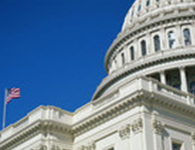 On a nearly unanimous 95-3 vote, U.S. Senate last week passed the Water Resources Development Act (WRDA) of 2016 (S. 2848) and accomplished a milestone legislative achievement that puts Senators on record in favor of providing significant new investment tools and common sense regulatory reforms to help all Americans afford investments in clean and safe water. The bill's overwhelming support demonstrates that water is a broad bipartisan issue and acknowledges the nation's growing water infrastructure needs.
On a nearly unanimous 95-3 vote, U.S. Senate last week passed the Water Resources Development Act (WRDA) of 2016 (S. 2848) and accomplished a milestone legislative achievement that puts Senators on record in favor of providing significant new investment tools and common sense regulatory reforms to help all Americans afford investments in clean and safe water. The bill's overwhelming support demonstrates that water is a broad bipartisan issue and acknowledges the nation's growing water infrastructure needs.
Passage of the bill on September 15 was particularly meaningful given that the day was also devoted to the Imagine a Day Without Water campaign. NACWA distributed a press release hailing the bill’s passage, and also spearheaded a joint water sector and municipal organization press statement thanking the Senate for its action.
Senate passage represents the most significant legislative progress to date on NACWA’s priorities to reform the Clean Water Act (CWA), advancing critical clean water investments and meeting a number of key objectives in the Association’s Strategic Plan. NACWA members have worked tirelessly over several years to realize many of these policy reforms and investment initiatives. These efforts that have been invaluable.
The bill contains a host of measures to address community affordability challenges and help communities pay for, and ensure ratepayers have access to, safe and clean water. Among the legislation’s key provisions are:
- Establishing a Water Infrastructure Trust Fund funded by a voluntary consumer goods label to spur private investment in the Clean Water and Drinking Water State Revolving Funds, and authorizing a study of the feasibility of establishing a low-income ratepayer assistance program;
- Codifying EPA's Integrated Planning Framework, providing communities more time to meet regulatory obligations, and establishing an Office of Municipal Ombudsman to provide a voice for municipalities struggling to afford the cost of federal regulatory requirements;
- Authorizing $1.8 billion to help communities deal with extreme wet weather;
- Requiring EPA to revise its 1997 Combined Sewer Overflows Affordability guidelines; and
- Authorizing the Water Infrastructure Financing & Innovation Act (WIFIA) program by removing its "pilot" program designation.
The Senate WRDA package also includes a number of other key NACWA priorities, including language advocated by the Association to direct the U.S. Army Corps of Engineers to coordinate with local governments where local water resource plans, such as stormwater management or aquifer recharge, may be impacted by Corps' activities.
While passage of WRDA by the Senate is an important step, focus now shifts to the House of Representatives where debate on the House package, H.R. 5303, has not yet occurred. House leaders have indicated a desire to move their WRDA bill before recessing for election year campaigning. If the House is able to pass its measure in the next few weeks, House and Senate committee staff could work on reconciling their respective packages and produce a WRDA conference report for enactment by the full Congress in a December Lame Duck session. For additional information on WRDA-related developments, please contact
Patricia SinicropiThis e-mail address is being protected from spambots. You need JavaScript enabled to view it
, Senior Director, Legislative Affairs, or Legislative Affairs Manager,
Kristina SurfusThis e-mail address is being protected from spambots. You need JavaScript enabled to view it
. NACWA will continue to keep members updated on developments.
EPA Proceeds with Study on Secondary Treatment, Nutrients
 EPA is moving forward with plans to conduct a multi-year study of the nutrient removal performance of secondary treatment facilities, publishing a Federal Register notice today to officially propose a screener survey for public review and comment. The Agency will send the screener survey to every clean water utility in the country, most likely in early 2017. EPA believes it needs the screener survey to establish a statistical baseline and to help identify which subset of utilities should receive a more detailed survey and be required to provide information on influent and effluent nutrient levels.
EPA is moving forward with plans to conduct a multi-year study of the nutrient removal performance of secondary treatment facilities, publishing a Federal Register notice today to officially propose a screener survey for public review and comment. The Agency will send the screener survey to every clean water utility in the country, most likely in early 2017. EPA believes it needs the screener survey to establish a statistical baseline and to help identify which subset of utilities should receive a more detailed survey and be required to provide information on influent and effluent nutrient levels.
EPA shared a preliminary draft of the screener survey with NACWA in July, and the Association outlined several concerns in an August 1 comment letter. A top concern is the Agency’s planned use of its authority under Section 308 of the Clean Water Act to conduct the survey. Section 308 letters often proceed enforcement actions and NACWA’s letter encouraged EPA to avoid using Section 308 to collect the information. NACWA and the Agency met several times to discuss the issue, and while EPA believes it must use Section 308 to ensure a sufficient response rate, it agreed to include language indicating that the information it was collecting would only be used for research or statistical purposes. EPA’s response to NACWA’s August 1 letter outlines the Agency’s rationale for using Section 308 and discusses how the screener survey would be updated to address many of the Association’s comments.
NACWA is now reviewing the revised screener questionnaire and plans to provide comments, in addition to working directly with EPA staff as the Agency proceeds with the study.
NACWA Looks Back at a Year of Commitment & Collaboration
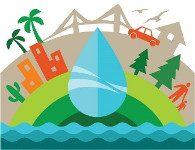 NACWA is pleased to announce the publication and release of its 2015 – 2016 Year-At-A-Glance, Elevating Clean Water as a Top National Priority. Through vibrant graphics and compelling content the Association’s 8-panel annual report reflects on its past 12 months of service to the water sector as the only organization dedicated solely to serving the interests of the public clean water utility community.
NACWA is pleased to announce the publication and release of its 2015 – 2016 Year-At-A-Glance, Elevating Clean Water as a Top National Priority. Through vibrant graphics and compelling content the Association’s 8-panel annual report reflects on its past 12 months of service to the water sector as the only organization dedicated solely to serving the interests of the public clean water utility community.
The report highlights NACWA’s role at the forefront of the White House National Infrastructure Advisory Committee (NIAC) study on water resilience and security and its leadership in bipartisan legislation that would help address affordability and low-income ratepayer needs. It chronicles its efforts to ensure the bipartisan Water Resources Development Act (WRDA) included meaningful changes to the Clean Water Act (see preceding article), as well as its collaborative work with the EPA to create policies that embrace the concepts inherent in the Utility of the Future. Efforts to bring key national water sector organizations together in a Joint Statement in response to the crisis in Flint, Michigan – and unite the sector for Water Week 2016 – were also featured.
NACWA believes that real strides in changing the clean water paradigm can only be made by working together – with utilities and through collaboration within the water sector as a whole. Elevating Clean Water as a Top National Priority reflects the Association’s commitment to collaboration – and demonstrates that by embracing its core mission, it has achieved great things.
Association Weighs in on EPA Guidance for Fish Consumption Surveys
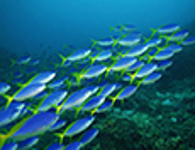 NACWA submitted comments September 13 on draft guidance from EPA on conducting fish consumption surveys when developing human health criteria. The guidance is intended to assist the states in estimating the amount of fish being consumed so they can develop protective criteria for toxic materials present in the fish tissue, but NACWA’s comments raised concerns over new concepts EPA has included in the guidance for the first time.
NACWA submitted comments September 13 on draft guidance from EPA on conducting fish consumption surveys when developing human health criteria. The guidance is intended to assist the states in estimating the amount of fish being consumed so they can develop protective criteria for toxic materials present in the fish tissue, but NACWA’s comments raised concerns over new concepts EPA has included in the guidance for the first time.
EPA is now pressing states to base the protection levels for the general population upon the fish consumption rates of sub-populations in the state, such as Native American tribes. The guidance also included a discussion of suppression, where EPA expects the states to make assumptions on how much fish these sub-populations would consume, were they not afraid of either real or perceived contamination of the fish. EPA has been pressing the suppression concept in the Pacific Northwest for some time, but this is the first time it has appeared in Agency guidance released for public comment.
Clean Water Community Speaks Out on Great Lakes CSOs
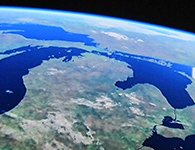 NACWA and several of its Member Agencies provided input at a September 14 public listening session for EPA’s development of public notification requirements for combined sewer overflow (CSO) discharges into the Great Lakes. The Metropolitan Water Reclamation District of Greater Chicago, the Northeast Ohio Regional Sewerage District, and the Milwaukee Metropolitan Sewerage District attended the session and provided statements about the notification requirements, and also participated in an open discussion about the questions posed in the Federal Register notice announcing the session.
NACWA and several of its Member Agencies provided input at a September 14 public listening session for EPA’s development of public notification requirements for combined sewer overflow (CSO) discharges into the Great Lakes. The Metropolitan Water Reclamation District of Greater Chicago, the Northeast Ohio Regional Sewerage District, and the Milwaukee Metropolitan Sewerage District attended the session and provided statements about the notification requirements, and also participated in an open discussion about the questions posed in the Federal Register notice announcing the session.
The utilities emphasized the need for flexibility to tailor their notification procedures so that they are feasible for their systems, their staff, and their communities. NACWA echoed the importance of flexibility, and also pointed out that while EPA has used the word “immediate” to describe potential notification standards, Congress did not require “immediate” notice in the Fiscal Year 2016 appropriations package that directed the Agency to develop the public notification requirements.
NACWA will submit written comments to EPA by the September 23 deadline, and the Association encourages all CSO utilities that discharge into the Great Lakes to send comments as well. NACWA will continue to engage with EPA as it works on the notification policy, and will strongly encourage the Agency to provide an opportunity for public comment on whatever it develops.
NACWA Signs International Wipes Position Statement
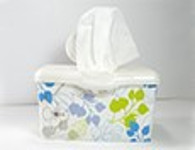 NACWA has signed on to an “International water industry position statement on non-flushable and ‘flushable’ labeled products.” The statement resulted from work on an International Organization for Standardization (ISO) technical specification for flushability, in which NACWA is participating along with representatives from two Member Agencies: Frank Dick, Vice Chair of the Association’s Pretreatment Committee, and Sewer & Wastewater Engineering Supervisor at the City of Vancouver, Washington Public Works, and Rob Villee, Executive Director of the Plainfield Area Regional Sewerage Authority in New Jersey. The statement emphasizes that only the “3 Ps” – pee, poop, and toilet paper – should be flushed, that wastewater utilities currently do not accept any flushability guidance for wipes, and that all wipes should be clearly labeled “Do Not Flush.” Utilities are also invited to sign the statement.
NACWA has signed on to an “International water industry position statement on non-flushable and ‘flushable’ labeled products.” The statement resulted from work on an International Organization for Standardization (ISO) technical specification for flushability, in which NACWA is participating along with representatives from two Member Agencies: Frank Dick, Vice Chair of the Association’s Pretreatment Committee, and Sewer & Wastewater Engineering Supervisor at the City of Vancouver, Washington Public Works, and Rob Villee, Executive Director of the Plainfield Area Regional Sewerage Authority in New Jersey. The statement emphasizes that only the “3 Ps” – pee, poop, and toilet paper – should be flushed, that wastewater utilities currently do not accept any flushability guidance for wipes, and that all wipes should be clearly labeled “Do Not Flush.” Utilities are also invited to sign the statement.
Please contact
Cynthia FinleyThis e-mail address is being protected from spambots. You need JavaScript enabled to view it
, Director of Regulatory Affairs, to add your utility to the statement, or if you have any questions about the statement.
Dental Amalgam Rule Submitted for White House Review
 EPA’s final Dental Amalgam Separator Rule has been submitted to the White House Office of Management & Budget (OMB) for review. EPA initially proposed the rule in October 2014, and NACWA submitted comments in February 2015 recommending that the rule be withdrawn due to its high cost and low environmental benefits. The Association has had many follow-up discussions with EPA about its comments and the impacts of the proposed rule on utilities, and EPA has stated that it is considering the Association’s recommendations for modifying the rule.
EPA’s final Dental Amalgam Separator Rule has been submitted to the White House Office of Management & Budget (OMB) for review. EPA initially proposed the rule in October 2014, and NACWA submitted comments in February 2015 recommending that the rule be withdrawn due to its high cost and low environmental benefits. The Association has had many follow-up discussions with EPA about its comments and the impacts of the proposed rule on utilities, and EPA has stated that it is considering the Association’s recommendations for modifying the rule.
NACWA will soon request a meeting with OMB to discuss the rule. Since NACWA has not seen the final rule, it continues its opposition and will do so until the rule can be fully analyzed by the Association and its Member Agencies.
Presidential Candidates Weigh in on Water Issues
 The organization ScienceDebate.org recently released a document with responses from the presidential candidates providing their views on a number of science, environmental, and engineering issues, including water. Both major party candidates, Donald Trump and Hillary Clinton, provided responses as part of the specific survey question on water challenges (see page 18 of the document), and both acknowledged the importance of making water a central focus of their policy agenda should they win the White House. Clinton in particular noted the need to boost investment in the nation’s water and wastewater systems, and also highlighted the continued need to address sewer overflows.
The organization ScienceDebate.org recently released a document with responses from the presidential candidates providing their views on a number of science, environmental, and engineering issues, including water. Both major party candidates, Donald Trump and Hillary Clinton, provided responses as part of the specific survey question on water challenges (see page 18 of the document), and both acknowledged the importance of making water a central focus of their policy agenda should they win the White House. Clinton in particular noted the need to boost investment in the nation’s water and wastewater systems, and also highlighted the continued need to address sewer overflows.
While it is heartening to see both major party candidates recognizing the importance of water in this election, the candidates’ responses also make clear that there is significantly more education the municipal clean water community must do to elevate water as a national priority. NACWA recently sent letters to both the Trump campaign and the Clinton campaign urging a greater focus on water policy issues during the current election season, and the Association will continue to engage the campaigns to advocate for municipal clean water priorities.
NACWA Supports Label Instructions for Swimming Pool Chemicals
 NACWA supported EPA’s proposed label language for its registration review of lithium hypochlorite, an antimicrobial chemical used in swimming pools, in comments submitted on September 12. Since antimicrobials can potentially interfere with the biological processes used to treat wastewater or have adverse aquatic impacts if discharged into storm drains, the Association agreed with EPA’s proposed instructions stating, “Before draining a treated pool, spa, or hot tub, contact your local sanitary sewer and storm drain authorities and follow their discharge instructions.”
NACWA supported EPA’s proposed label language for its registration review of lithium hypochlorite, an antimicrobial chemical used in swimming pools, in comments submitted on September 12. Since antimicrobials can potentially interfere with the biological processes used to treat wastewater or have adverse aquatic impacts if discharged into storm drains, the Association agreed with EPA’s proposed instructions stating, “Before draining a treated pool, spa, or hot tub, contact your local sanitary sewer and storm drain authorities and follow their discharge instructions.”
NACWA also agreed with the more detailed comments of the Bay Area Clean Water Agencies (BACWA) regarding EPA’s environmental risk statement and environmental hazards labeling. While wastewater and stormwater utilities may have the ability to work with public and commercial swimming pool operators, it is much more difficult to regulate discharges from the millions of residential pools in the U.S. Appropriate labeling of pool chemicals is an important step in educating pool owners about proper drainage procedures.
Water Sector Launches Innovation & Technology Scholarship Program
 Supported by NACWA, the Water Environment & Reuse Foundation (WE&RF), and the Water Environment Federation (WEF), the Scholarship Exchange Experience for Innovation & Technology (SEE IT) is now accepting applications. The SEE IT program provides support for utilities to learn about, gain confidence in, and adopt new technologies and approaches more quickly.
Supported by NACWA, the Water Environment & Reuse Foundation (WE&RF), and the Water Environment Federation (WEF), the Scholarship Exchange Experience for Innovation & Technology (SEE IT) is now accepting applications. The SEE IT program provides support for utilities to learn about, gain confidence in, and adopt new technologies and approaches more quickly.
Scholarships will be provided to selected utility personnel to enable visits to other utilities with innovations of interest. As water resource recovery facilities (WRRFs) are transforming themselves into Utilities of the Future and becoming drivers of resource recovery, economic growth, and improved environmental performance, implementation of innovative technologies, processes, and approaches are essential. These scholarships enable staff to visit and see innovations in action at peer facilities both in the U.S. and across the globe.
Utility representatives interested in investigating a new technology or learning about an innovative approach at another facility are encouraged to submit an application. If selected, the sponsoring organizations will provide travel support for the personnel to visit the utility that is implementing the technology or innovation of interest. The scholarships are being administered through the Leaders Innovation Forum for Technology (LIFT). Candidates may apply to visit innovations that include new technologies and processes, but also novel approaches to service, operations, and finance. The LIFT SEE IT application is available on www.werf.org. Applications are due December 1, 2016.
Communications Committee Addresses Key Clean Water Issues
 NACWA’s Communications & Public Affairs Committee held a virtual meeting on September 14 addressing a number of timely clean water issues including rate case messaging, the Association’s Industry of the Future effort, and the Imagine A Day Without Water campaign.
NACWA’s Communications & Public Affairs Committee held a virtual meeting on September 14 addressing a number of timely clean water issues including rate case messaging, the Association’s Industry of the Future effort, and the Imagine A Day Without Water campaign.
The meeting included a presentation on Crafting Messages for Water Rate Increases by Sapna Mulki, Director, Water, Hahn Public. Mulki discussed a recent research project on rate messaging, key takeaways from that research, and offered recommendations on persuasive messaging.
Andrew Kricun, NACWA Board Member and Executive Director/Chief Engineer for the Camden County Municipal Utilities Authority, discussed the Association’s Industry of the Future initiative. Kricun requested assistance from the Committee to more broadly publicize the Utility of the Future (UOTF) recognition program in 2017, and to disseminate successful UOTF practices in an effective and persuasive way in order to encourage replication.
The Value of Water Coalition also provided an update on Imagine a Day Without Water, which took place on September 15. Over 400 organizations across the country participated in this day of action to raise awareness about the crucial need for water infrastructure investment to ensure no community in America is left without water or the infrastructure that brings it to and from homes and businesses.
Slides from the presentation including a video for Imagine a Day Without Water are available here. The Committee will next meet on October 19 from 2:00 – 3:30 pm Eastern Time. If you are interested in getting involved with NACWA’s Communications & Public Affairs Committee, please contact
Amanda WatersThis e-mail address is being protected from spambots. You need JavaScript enabled to view it
.
Clean Water Message Shared in Oregon, New Jersey
 NACWA was busy last week discussing important clean water priorities with regional groups on both the West Coast and East Coast. Cynthia Finley, NACWA’s Director of Regulatory Affairs, gave two presentations at the Pacific Northwest Pretreatment Workshop. The first focused on the Association’s advocacy work related to pretreatment and pollution prevention, including the dental amalgam separator rule (see preceding story), and comments provided to EPA on pesticides with potentially harmful effects on water quality or the wastewater treatment process. The second presentation focused on the NACWA’s work on wipes, including the efforts to develop improved flushability guidelines and labeling practices
NACWA was busy last week discussing important clean water priorities with regional groups on both the West Coast and East Coast. Cynthia Finley, NACWA’s Director of Regulatory Affairs, gave two presentations at the Pacific Northwest Pretreatment Workshop. The first focused on the Association’s advocacy work related to pretreatment and pollution prevention, including the dental amalgam separator rule (see preceding story), and comments provided to EPA on pesticides with potentially harmful effects on water quality or the wastewater treatment process. The second presentation focused on the NACWA’s work on wipes, including the efforts to develop improved flushability guidelines and labeling practices
The Association also provided a national advocacy perspective at the New Jersey Water Environment Association’s (NJWEA) 2016 Fall Technology Transfer Seminar in Eatontown, NJ. Amanda Waters, NACWA’s General Counsel, delivered a presentation outlining litigation in West Virginia and Illinois that threatens to undermine the Clean Water Act (CWA) Section 402(k) Permit Shield and the potential impacts on NPDES permittees. She highlighted NACWA’s efforts to overturn the negative lower court precedent. She also advised on the type of boilerplate language in permits that should raise a red flag and provided recommendations to NPDES permittees on how to object to these provisions at the permit issuance stage. In a separate presentation at the NJWEA event, Chris Hornback, NACWA’s Chief Technical Officer, discussed nutrient recovery technologies and ongoing efforts by clean water agencies to address nutrient pollution through partnerships with agricultural dischargers.
- We look forward to seeing many of you at the Utility Leaders Morning at WEFTEC16. Jointly sponsored by NACWA and the Water Environment Federation (WEF) for utility leaders and invited guests, the event's agenda will feature presentations on management and leadership issues, a dialogue with the U.S. Environmental Protection Agency, and a special ceremony recognizing 2016 Utility of the Future Today honorees. Join us from 7:30-10:30 am on Tuesday, September 27 in Great Hall A at the New Orleans Convention Center.
- Register now for the World Water-Tech North America summit, October 18 – 20, 2016 in Toronto. Hosted by WaterTAP Ontario and Rethink Events, the conference focuses on accelerating innovation in energy optimized and climate resilient infrastructure. Hear best practice case studies of energy optimization and network management from the world’s leading water companies, and learn how to build a successful commercial model for reuse and resource recovery. Registration is now open. NACWA is a partner for the event and Association members receive a $300 savings on registration. Just type in NACWA16 when registering at www.worldwatertechnorthamerica.com.
- Register now for the Region 6 Integrated Planning Workshop, October 27 in Dallas, Texas. Sponsored jointly by NACWA, the Water Environment Federation (WEF), the Water Environment Association of Texas (WEAT), and the Texas Association of Clean Water Agencies (TACWA), this Workshop will provide an opportunity for all clean water utilities in Region 6 to learn more about Integrated Planning and how best to use it.
- NACWA is pleased to announce that nominations are now open for the 2017 National Environmental Achievement Award (NEAA) program. The NEAA program honors individuals and Member Agencies that have made significant contributions through outstanding advocacy or innovative projects that positively impact the environment, their utility, their community, NACWA, and the water sector. The National Environmental Achievement Awards application in its entirety is now available to be completed online. Applications must be submitted online no later than Friday, October 28, 2016.
- Register now for NACWA's 2016 National Clean Water Law Seminar & Consent Decree Workshop, November 1- 4, 2016 in Kansas City, Missouri at the Intercontinental Kansas City. The event pairs for the first time the Association's popular annual Law Seminar with its compelling Wet Weather Workshop- providing an invaluable learning and networking experience for utility leaders and lawyers alike!
- Save the Date! Plan now to attend NACWA’s 2017 Winter Conference, February 4 – 7, 2017, in Tampa, Florida. Next Generation Compliance … Where Affordability & Innovation Intersect will examine the intersection of increasingly stringent regulatory requirements with efforts to innovate – and the overarching challenge of affordability. NACWA’s 2017 Winter Conference will be co-located with the American Water Works Association (AWWA)/ Water Environment Federation (WEF) Utility Management Conference – with both taking place during the same week at the Tampa Marriott Waterside Hotel.